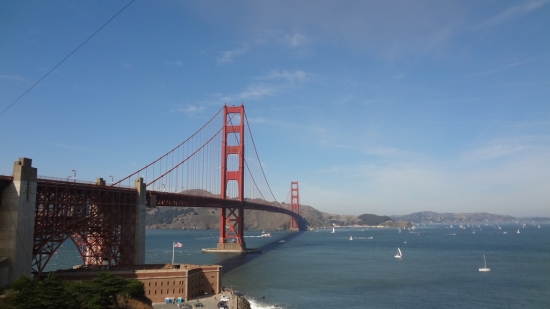Never a company accused of thinking small, Google is apparently planning to anchor three giant floating stores on both coasts of the United States.

Details of the internet giant’s pioneering retail project were leaked recently after suspicions heightened about a vessel taking shape in a Californian shipyard.
Code named “Hangar 3” — an apparent reference to the Treasure Island, San Francisco, building inside which much of the fabrication is taking place — the total cost is claimed to be $35m or a little over £21m.
Rumours of Google’s top secret project have been circulating for months, but few imagined anything as adventurous as this. If accurate, west coast barge builder Turner Construction has been contracted to build three vessels each capable of being stacked with up to 80 shipping containers with sails down each side. The first of the barges is said to be nearing completion.
Google has already applied to the Port of San Francisco for waterfront berthing permits, describing the floating structure as a “studio” to be used as “temporary technology exhibit space”. Consistent, in some ways, with what company representatives told Mirian Saez, the Treasure Island Development Authority’s director of operations. When completed, they claimed the three barges “would be an important opportunity” for next year’s launch of Google Glass, the company’s long heralded wearable technology.
In an earlier application to the port authority, Google claimed the aim of the barge project is to “drive visitation to the waterfront”. The vessel would be moved to various locations around the bay, while the sails would be “reminiscent of fish fins, which will remind visitors that they are on a seaworthy vessel”.
If the leaked document is accurate, the company ultimately wants to dock each of its floating stores in San Francisco, Los Angeles and New York. Even its initial west coast target could prove problematic with Google needing a permit from the regional Bay Conservation and Development Commission to moor a barge in the San Francisco bay for any length of time. The idea of it being a permanent retail outlet could prove equally choppy.
“A floating retail store that is not a bay-oriented enterprise would probably make a lot of jaws drop at a commission meeting,” said commission executive Larry Goldzband.
He says Google lawyers have contacted him three times in the past six weeks about the ongoing Treasure Island project, but have never offered to explain the company’s intentions.
“We have told them we don’t want to wait a heck of a lot longer because the public needs to know what Google is doing,” he added.
There is one question the commission is sure to ask. “Is there an alternative land location for this programme?” If there is, says Goldzband, the commission is going to have a very difficult time convincing the public something like this should be happening on the bay waterfront.
Google has never denied it is investing millions in the floating project, but remains cagey about their exact use.
“While we have explored many ideas in the past around the barges,” a statement claims, “our current plan is to use them as an interactive space where people can learn about new technology.”
Previous Post
Leading Artist turns Property Developer